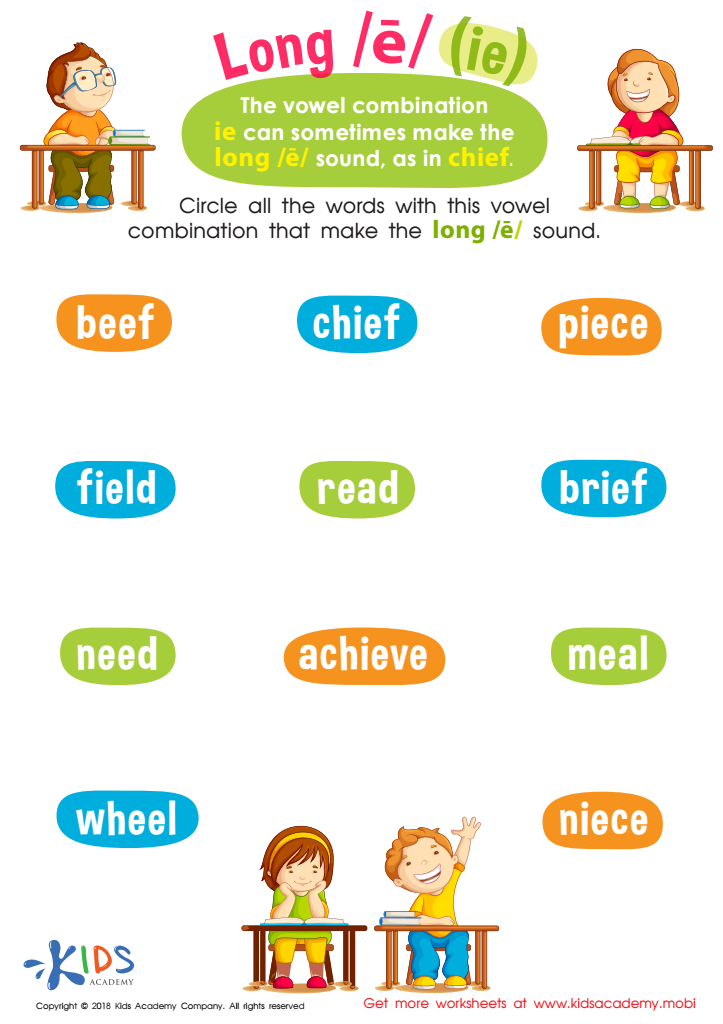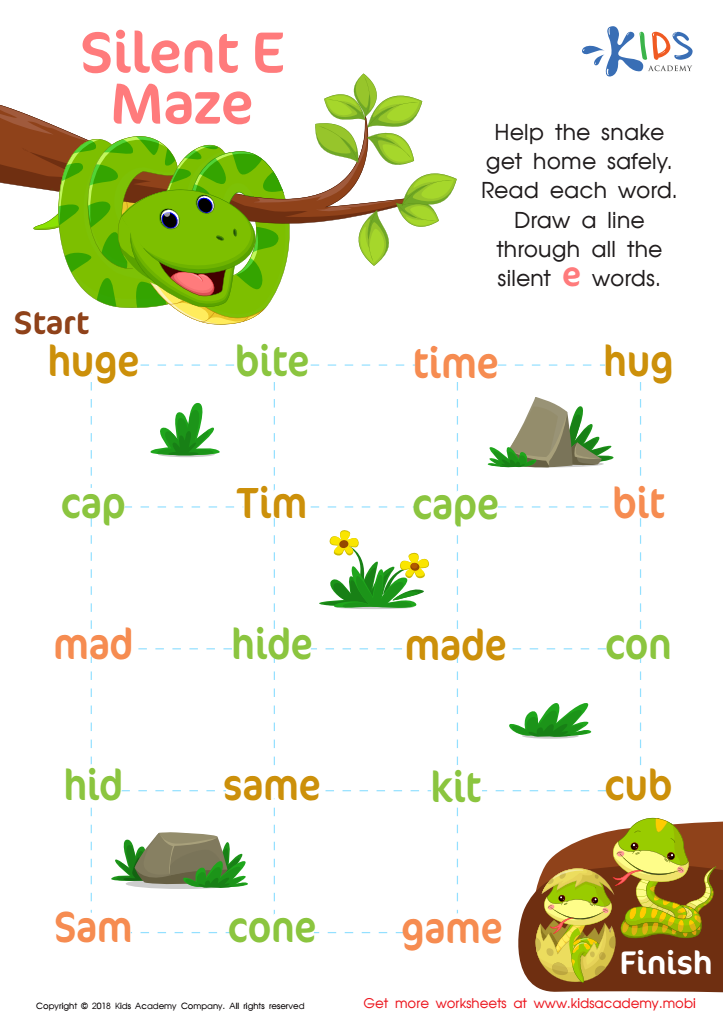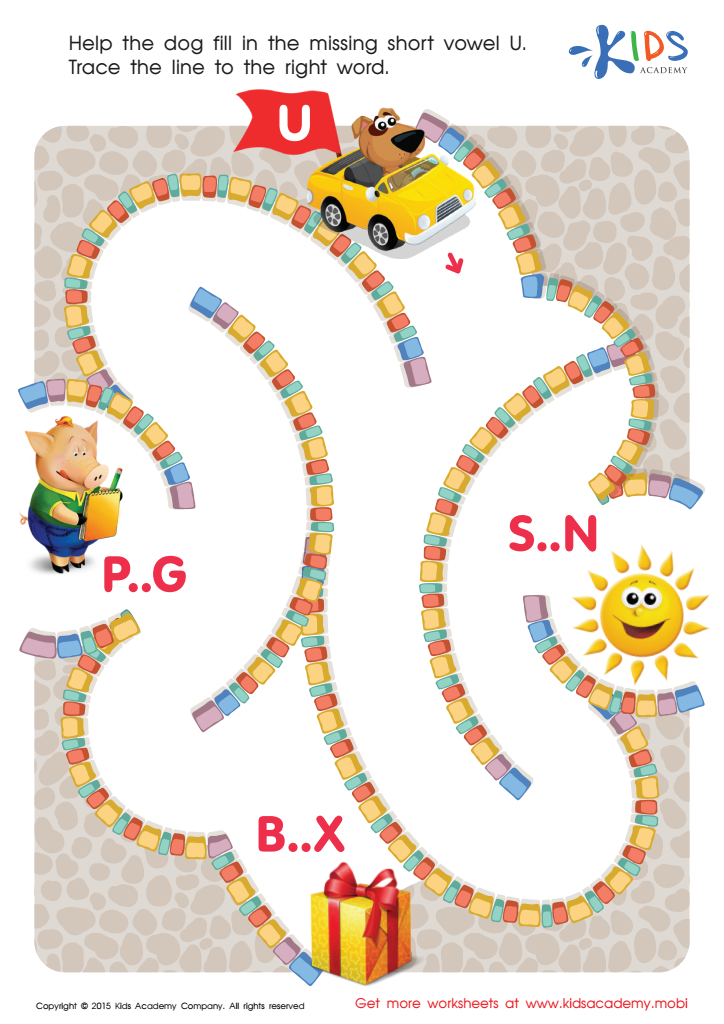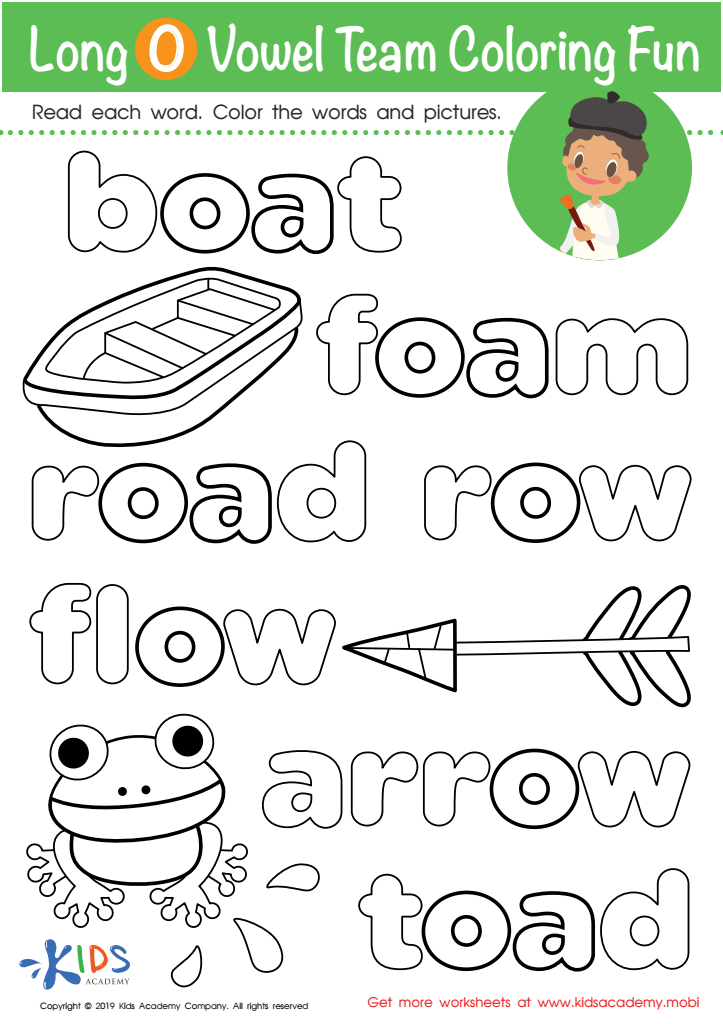Spelling improvement Vowels Worksheets for Ages 6-7
4 filtered results
-
From - To
Enhance your child’s spelling skills with our engaging Vowels Worksheets designed specifically for ages 6-7. These worksheets focus on the fundamental role vowels play in word formation, helping young learners boost their literacy in a fun and interactive way. Each worksheet presents a variety of activities, including fill-in-the-blanks, matching games, and creative exercises, to keep children motivated while they practice spelling. Perfect for parents and teachers seeking effective resources, our worksheets promote not only spelling improvement but also overall phonemic awareness. Start your child’s journey toward spelling mastery today with our thoughtfully crafted vowel worksheets!


Reading: Long E and IE Worksheet


Silent E Maze Worksheet


Short Vowel Sound U Worksheet


Long O Vowel Team Coloring Worksheet
Spelling improvement, particularly with vowels, is crucial for children aged 6-7 as it forms the foundation for their literacy skills. At this age, children are beginning to grasp the complexities of the English language, and understanding vowels is essential in helping them read and write effectively. Vowels play a pivotal role in word formation, phonetic awareness, and overall comprehension.
By focusing on vowel mastery, parents and teachers can empower children to decode unfamiliar words, enhancing their confidence in their reading and writing abilities. Improved spelling skills directly correlate with better reading fluency and comprehension, as children learn to recognize patterns and structures in words. Additionally, strong spelling abilities contribute to effective communication, aiding children in expressing their thoughts clearly through writing.
Beyond academics, spelling improvement fosters critical thinking skills and encourages a love for language. Children who engage in spelling activities often develop a stronger vocabulary, which enhances their ability to articulate ideas and participate in discussions.
Ultimately, prioritizing spelling improvement for vowels not only equips young learners with necessary academic skills but also nurtures curiosity and self-esteem, setting the stage for lifelong learning and literacy development.

 Assign to My Students
Assign to My Students












